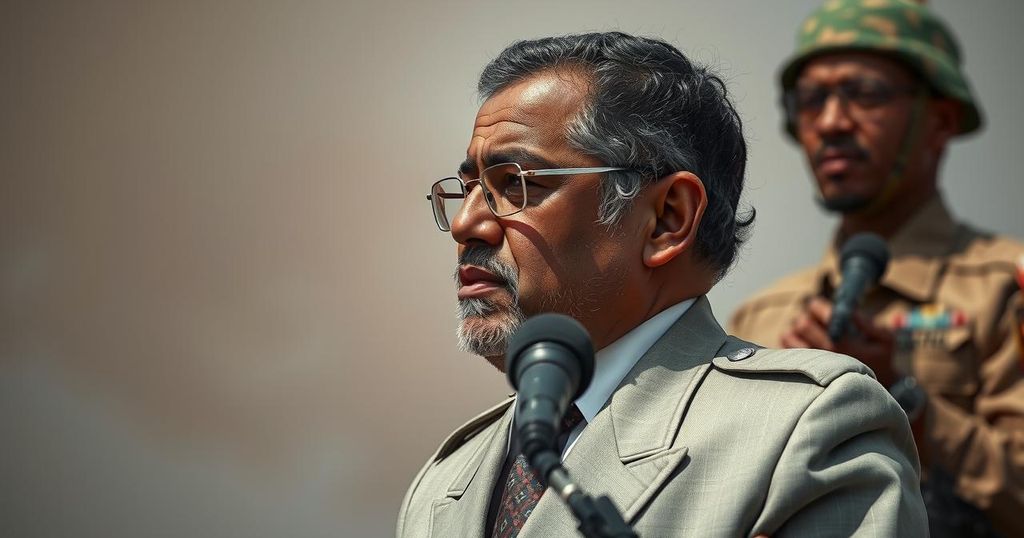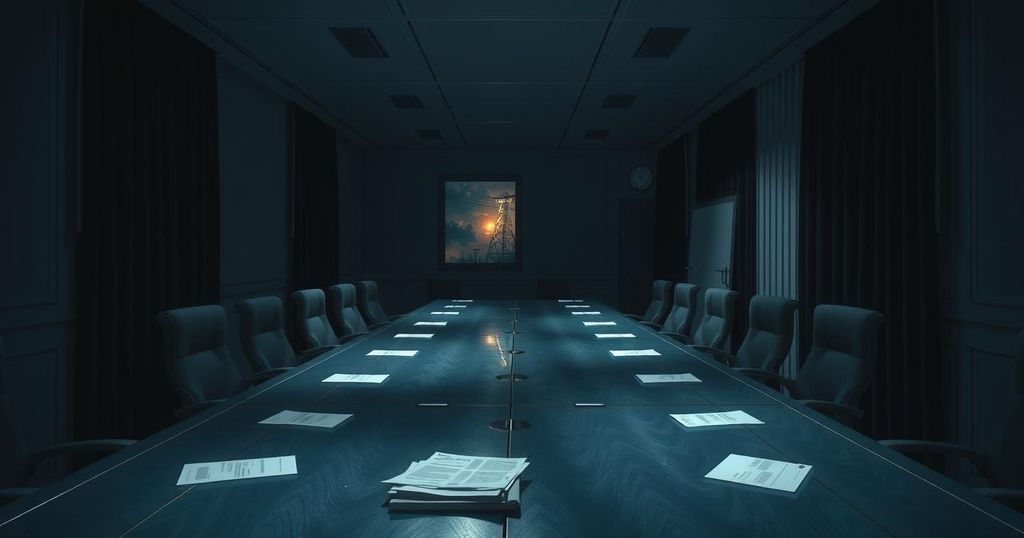Libyan PM Opposes Russian Military Reinforcement Amid Ongoing Conflicts
Libyan Prime Minister Abdul Hamid Dabaiba has strongly opposed Russia’s plans to reinforce military capabilities in eastern Libya. He emphasized that Libya should not serve as a battleground for international conflicts. His government aims to maintain sovereignty and prevent further complications arising from foreign military support, particularly in light of recent developments post-Assad’s regime in Syria. Dabaiba’s actions may reflect an attempt to align with the United States amid increasing economic pressures on Libya’s leadership.
Abdul Hamid Dabaiba, the Prime Minister of Libya’s UN-recognized government in Tripoli, has expressed strong opposition to Russia’s plans to bolster its military presence in eastern Libya. He articulated his concerns during a recent statement, emphasizing that Libya should not become a battleground for international conflicts and foreign interests. “We have concerns about moving international conflicts to Libya, and that it will become a battlefield between countries,” he asserted. Reports indicated that Russian forces were transferring military equipment from Syria to Libya to strengthen the positions of rival factions, particularly those allied with Khalifa Haftar in the east.
Dabaiba insisted that his administration would prevent Russian weapon transfers to Libya, warning that such actions would exacerbate the existing internal turmoil. He highlighted the importance of national sovereignty and patriotism, stating, “No one with an ounce of patriotism wants a foreign power to impose its hegemony and authority on the country and the people.” The Prime Minister has already approached the Russian ambassador to seek clarification regarding these developments.
This situation arises amid heightened tensions in the region following the recent fall of the Assad regime in Syria, which has prompted Russia to shift its military strategy and increase its foothold in Libya. Analysts have remarked that Dabaiba’s statements represent a significant shift, potentially revealing his desire to align more closely with American interests, particularly as the US imposes new economic pressures on Libyan authorities to combat corruption and ensure financial accountability.
The Libyan Central Bank has faced scrutiny from the US Federal Reserve over irregularities in transaction oversight, particularly concerning oil revenues. Recent assessments estimated a glaring discrepancy of approximately $9 billion in Libya’s oil income for 2023, suggesting possible smuggling and mismanagement issues. Such audits could expose deeper financial ties to Russia and might pave the way for potential sanctions against key figures involved.
Overall, the evolving landscape in Libya reflects broader geopolitical maneuvers and the intricate interplay between local and international actors, with Russia’s ambitions now facing considerable resistance from the Libyan government.
Since the fall of Muammar Gaddafi in 2011, Libya has remained embroiled in conflict, with competing factions vying for control over resources and governance. The country is divided primarily between the UN-recognized government in Tripoli and a rival administration in the east backed by military leader Khalifa Haftar. Amidst these tensions, Russia has intensified its military involvement in Libya, seeking to support Haftar’s forces with weaponry and other military resources, particularly following political changes in Syria. Dabaiba’s government, under increasing pressure from Western powers, is now openly opposing foreign military enhancements within its territory, reinforcing the principle of sovereignty in face of external interventions.
In conclusion, Prime Minister Abdul Hamid Dabaiba’s firm rejection of Russian military enhancements in Libya signifies a critical development in the country’s ongoing struggle for sovereignty amid foreign intervention. His administration’s proactive stance aims to discourage further international conflicts from spilling into Libya, while simultaneously seeking alignment with US interests. The scrutiny over financial management and potential audits promises to uncover deeper issues within the Libyan oil sector, with far-reaching implications for the nation’s political landscape and external relations, particularly regarding Russia.
Original Source: www.theguardian.com




Post Comment